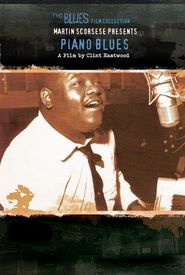Willie Dixon was born in Vicksburg, Mississippi, where his devoutly religious mother spent much of her time writing religious poems, exposing young Willie to rhyming and meter. At a young age, he sang with the Union Jubilee Singers, a gospel group that had a show on radio station WQBC in Vicksburg.
Dixon and two friends were arrested for stealing wood and other items from a doctor's house and were sent to a prison farm. He briefly gave up singing for a career as a boxer, but soon returned to his first love, music.
In 1936, Dixon left Mississippi by train-hopping to Chicago, which had a vibrant music scene. He kept his hand in boxing, becoming the Illinois Golden Gloves Boxing Champion in 1937. He turned pro, even sparring with heavyweight champion Joe Louis, but his boxing career ended after a brawl with his manager over money.
Dixon took up bass playing and formed a group called The Five Breezes with guitarist Leonard Caston. The group played in Chicago-area clubs and made a few records, but broke up when Dixon was arrested for refusing to serve in the military.
After finishing his sentence, Dixon formed another group, The Four Jumps of Jive, which made the rounds of Chicago's clubs and cut a few singles for Mercury Records. He later formed The Big Three with Caston and Bernardo Dennis.
Dixon was playing in Chicago's South Side blues clubs with greats such as Muddy Waters when he met brothers Phil Chess and Leonard Chess, the owners of the Macomba Lounge and Chess Records. They offered him a job as a songwriter and producer, and he soon went to work for them full-time.
Dixon wrote songs for Chess artists such as Muddy Waters, Howlin' Wolf, and Little Walter, which met with great success. He also recorded some singles on his own, but was more successful as a songwriter.
In 1957, Dixon left Chess for Cobra Records, working with legendary guitarists such as Buddy Guy and Otis Rush. Cobra went out of business after two years, and Dixon returned to Chess.
In addition to his songwriting and producing work, Dixon formed the Chicago Blues All-Stars and toured extensively with them. In the 1970s and 1980s, he got involved in composing film soundtracks, writing the score for Martin Scorsese's The Color of Money in 1986.
Dixon was inducted into the Blues Foundation's Hall of Fame in 1980 and continued to play clubs, festivals, and tour the US and Europe. By 1990, his health began to decline, and he had to cut down on his touring and scale back his performances with the Chicago Blues All-Stars. He died of a heart ailment in Burbank, California, two years later.























